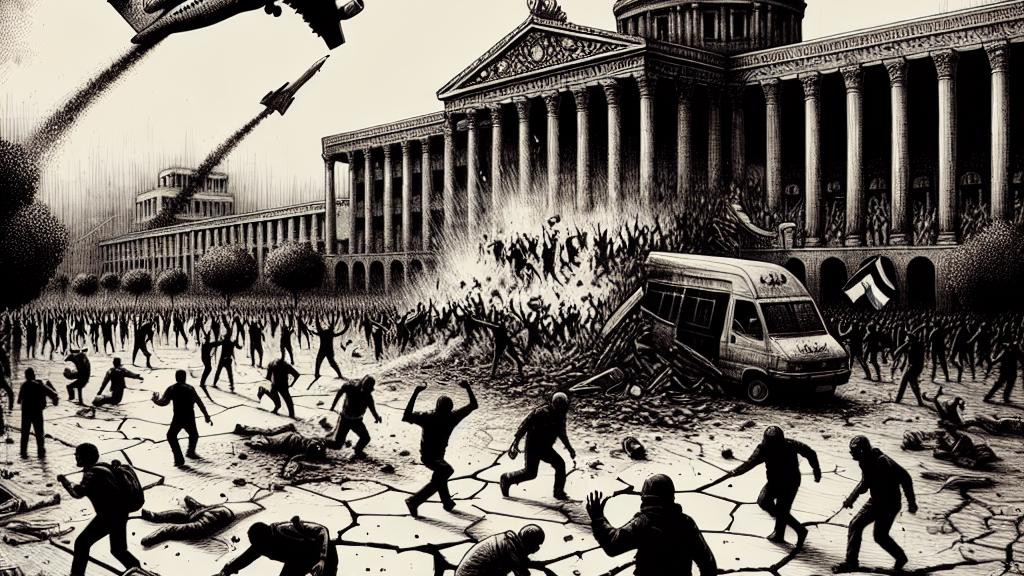Chaos in Bangladesh: U.S. Urges Democratic Revival After Hasina's Hasty Exit!
Overview
- Sheikh Hasina's unexpected resignation ignites widespread turmoil.
- The U.S. calls for a democratic interim government amid escalating violence.
- Protests have resulted in over 300 casualties, reflecting deep public unrest.

The Resignation of Sheikh Hasina
In a startling political development on August 5, 2024, Sheikh Hasina, the Prime Minister of Bangladesh, resigned and fled the country aboard a military aircraft, leading to immediate chaos. This unexpected move occurred in the wake of intense anti-government protests fueled by discontent over Hasina's policies and governance style. As security forces announced the establishment of an interim government, the streets of Dhaka erupted in violence, with protestors storming the Prime Minister's palace, leading to extensive looting and vandalism. The tragedy deepened as the protests turned deadly, resulting in over 300 fatalities, highlighting the stark divisions and frustrations within Bangladeshi society.
U.S. Call for Democratic Principles
In response to the unfolding crisis, the United States has made a clear call for the formation of an interim government that respects democratic values and the will of the Bangladeshi people. State Department spokesperson Matthew Miller emphasized the need for the new government to be in line with established democratic norms and accountability. He condemned the violence erupting from protests and underscored the importance of lawful governance, urging all parties to seek peaceful resolutions. The United States’ interest reflects not only a commitment to democracy in Bangladesh but a broader desire to see stability and human rights upheld in the region.
Historical Context and International Implications
The current political turmoil in Bangladesh extends beyond the resignation of one leader; it is a significant chapter in the nation’s tumultuous history characterized by political instability and military coups. Bangladesh has faced periods of authoritarian rule since its independence, with a concerning legacy of violence and repression. This backdrop emphasizes the necessity for the international community, particularly the U.S., to engage actively and support movements toward genuine democratic governance. As Bangladesh navigates this critical juncture, it is imperative to foster an environment that encourages political participation and addresses the root causes of unrest, paving the way for a more inclusive and stable future.

Loading...